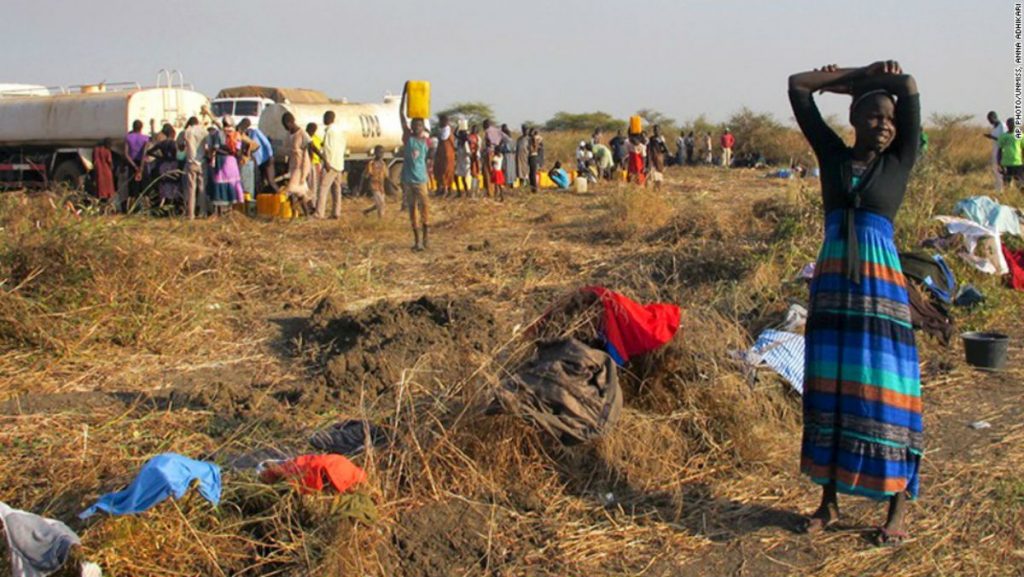U.N. Security Council fails to impose arms embargo on S. Sudan

The U.N. Security Council failed Friday to adopt a U.S.-drafted resolution to impose an arms embargo on South Sudan after Japan and seven other nations abstained despite warnings that the world’s newest country is on the verge of possible genocide.
“Japan believes that it would be counterproductive to introduce additional sanction measures at a time when the transitional government is making some positive moves,” Japanese Ambassador Koro Bessho told council members, noting that Prime Minister Shinzo Abe’s special envoy is visiting Juba this week.
“The council must continue to engage with the transitional government. Japan views that there is still room for diplomatic efforts in order to urge the transitional government to make further steps ahead.”
“At this moment in time sanctions for us do not seem to be a good idea,” he told reporters after the vote was cast.
The United States had been pressing Japan, currently a nonpermanent member of the 15-country council, along with another nonpermanent member, to garner the minimum threshold of nine yes votes for passage.
“We are extremely disappointed by the outcome of the vote. We’re not surprised,” U.S. Ambassador Samantha Power told reporters.
“Many of those council members who abstained were countries that supported an arms embargo for many, many months, against the government of South Sudan, on much the same logic that we brought to bear today: the idea that it stands to reason when a country is potentially on the brink of genocide or full-on ethnic conflict, fewer arms are better than more arms.”
Aside from the United States, Britain and France, which have long supported efforts to control the arms in South Sudan, China and Russia also hold veto power in the council and either could have blocked the resolution outright. Beijing and Moscow both abstained.
In the lead-up to the vote, Washington had hoped that Japan as well as one other country, such as Senegal, Angola or Malaysia, could be brought along to support the measure, but that was not the case.
“Having followed the developments in South Sudan closely, it is ever more important for council members to remain united in charting a comprehensive and effective strategy to support the efforts of the South Sudanese authorities to implement the peace agreement, protect civilians and restore peace and stability in the country,” Malaysian Ambassador Ramlan Bin Ibrahim said in his remarks.
South Sudan has been mired in unrest after a rivalry between South Sudan’s President Salva Kiir, an ethnic Dinka, and his now-exiled former deputy Riek Machar, an ethnic Nuer, led to a civil war in 2013.
Tensions fell along ethnic lines, pitting the Dinkas against the Nuers. Although a shaky peace agreement was brokered, renewed fighting broke out again in July, once again raising global alarms.
The text of the draft resolution says that for one year after its adoption, all member states are to immediately take “necessary measures” to prevent the direct or indirect supply, sale or transfer of arms or related materiel into South Sudan.
“It is very unfortunate that individuals who are critical to the peace process are being targeted and listed for sanctions by this resolution,” South Sudan’s deputy ambassador Joseph Moum Majak Ngor Malok said in his remarks. “Punitive measures may tend to harden positions as opposed to cooperation.”
Three key figures — opposition leader Machar, Paul Malong, the Sudan People’s Liberation Army’s chief of staff, and Michael Makuei Lueth, South Sudan’s Information Minister — would have also been subject to asset freezes and travel bans.
U.N. Secretary General Ban Ki Moon on Monday at a meeting to discuss the situation urged the council to take immediate action to “take steps to stem the flow of arms to South Sudan.”
“If we fail to act, South Sudan will be on a trajectory towards mass atrocities,” he said. “Its people will be the target of those atrocities while they pin their hopes on the international community in general and the Security Council.”
Mainichi